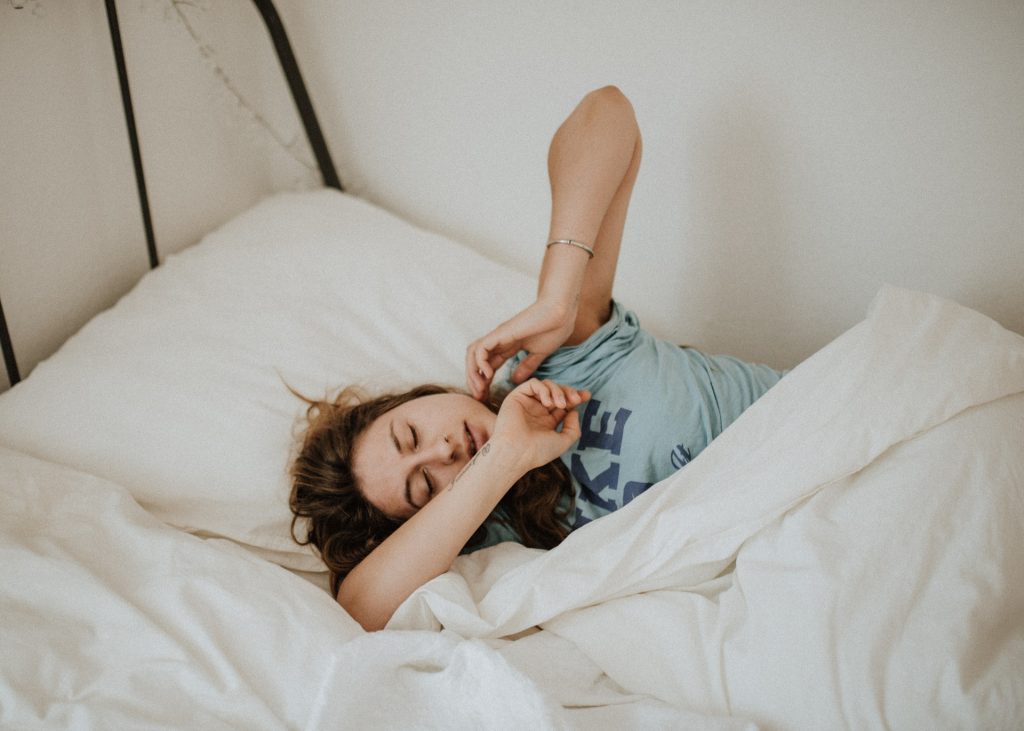
The new abnormal: Have you been having vivid lockdown dreams?
Since lockdown began in March, many people have had to adjust to changes in their day-to-day lives that are new and strange. The situation has impacted sleep habits in quite a few ways, ranging from difficulties with sleep routines to the increased importance of bed hygiene, but many people have also reported a new change to their rest: having much more vivid dreams.
One way to see this in action is by looking at Google Trends data, where searches for "weird dreams" and "vivid dreams" doubled in volume in April. This means that twice as many people are logging on to try and find out why they’ve been experiencing such intense dreams during lockdown.
In this blog post, we're going to take a closer look at why this phenomenon has appeared and what you can do to manage it if it begins to impact the quality of your sleep.
Why are people experiencing vivid dreams in lockdown?
To find out why so many people are experiencing more dream activity, you need to look at how the brain works during sleep. It's easy to assume that your mind rests when you do, but it actually stays hard at work processing information, memory, and emotions. Your brain's activity at night is directly related to what you've experienced, and your dreams are the result of all this processing.
This means that in a situation like lockdown, where you are adjusting to a new situation, getting new guidelines to follow, and potentially experiencing stress and anxiety, your brain is having to work a bit harder to process everything. And, when it does this, it's likely that you will experience more vivid dreams than before due to your heightened emotional state.
There are also other potential causes of more vivid dreams that could be being intensified by current lockdown conditions. For one, if you suffer from a sleep disorder, such as insomnia, the added stress of the pandemic might be causing your condition to peak. And, if you find that you're drinking more alcoholic beverages in the evening, they might also be escalating your dreams. Some medications can also have a similar side-effect.
What can I do to manage my vivid dreams?

There are a few courses of action you can take to try and keep any vivid dreams under control during lockdown if they are causing you problems. Here are a few that might help.
Stick to a regular waking up time
If your vivid dreams are troubling you or manifesting as nightmares that you remember clearly when you wake up, this could be because you're waking up when you have them through the night. Many experts think that when you wake, your brain's long-term storage is prioritised, so doing this straight from a dream makes it easier to recall (Scientific American).
To counter this, it's recommended that you stick to a regular waking up time, which your body clock will adapt to. Over time, your brain will identify this as the moment for you to become conscious, reducing the chances of doing so through the night. This should help to forget any particularly vivid dreams and reduce the issues they're causing during the day.
Try to solve some of your problems before bed
Like we mentioned, your brain processes the day's events through the night, which can feed into any dreams you have. So, if you've got a few problems or uncertainties that need to be resolved, try not to put them off until tomorrow and take action today if you can. Even if you can't resolve issues right away, the fact that you've started the process is likely to put your mind more at ease.
Another method that can often be helpful is to write a to-do list before you go to sleep. It's thought that seeing the tasks rationalised on a bit of paper can help you get a handle on what needs to be done and remove some of the stress that can creep into sleep and, subsequently, your dreams.
Practice mindfulness or meditation activities
If you're able to go to bed as calm and relaxed as possible, and with a clear mind, it stands to reason your brain is less likely to go into overdrive through the night. Mindfulness and meditation activities are great for calming yourself, so it might be worth practicing some before you go to bed.
And, if you are new to these practices, there are some useful apps out there that can help you get into the swing of things. Mindful have a round-up of the best ones that are also free to use that will help you get started.
Avoid drinking alcohol before bed
As we covered earlier, alcohol is a sleep disruptor that reduces restful sleep and also promotes vivid dreaming, so drinking large quantities can leave you feeling both tired and on edge the next day. So, it might be a good idea to eliminate or severely reduce the amount you drink during lockdown, even on weekends. This will give you a much better chance to have a dreamless sleep.
Hopefully, we’ve shone a light on why you might have experienced more vivid dreams during the current lockdown, as well as sharing some tips for managing them.
Do you have any questions about the science of sleep? Then be sure to contact our sleep experts. Or, head to our blog and advice centre for more help.








Leave a Reply